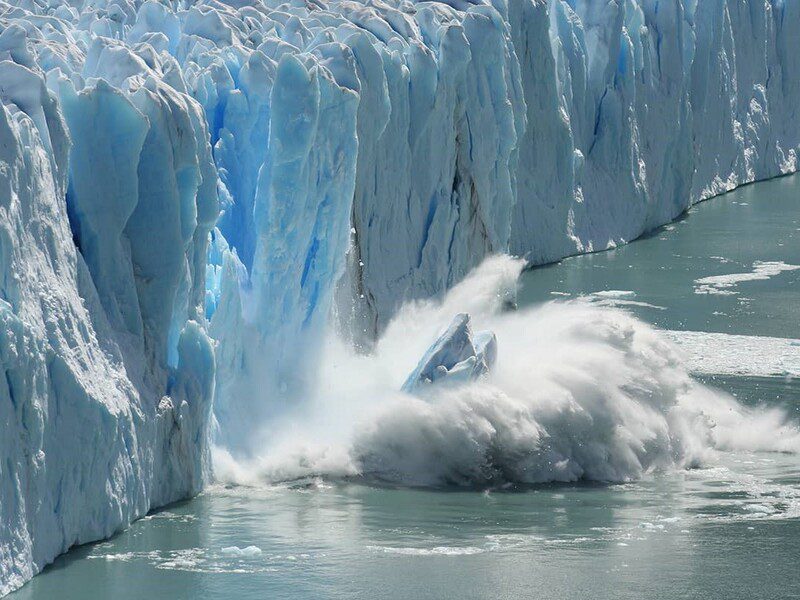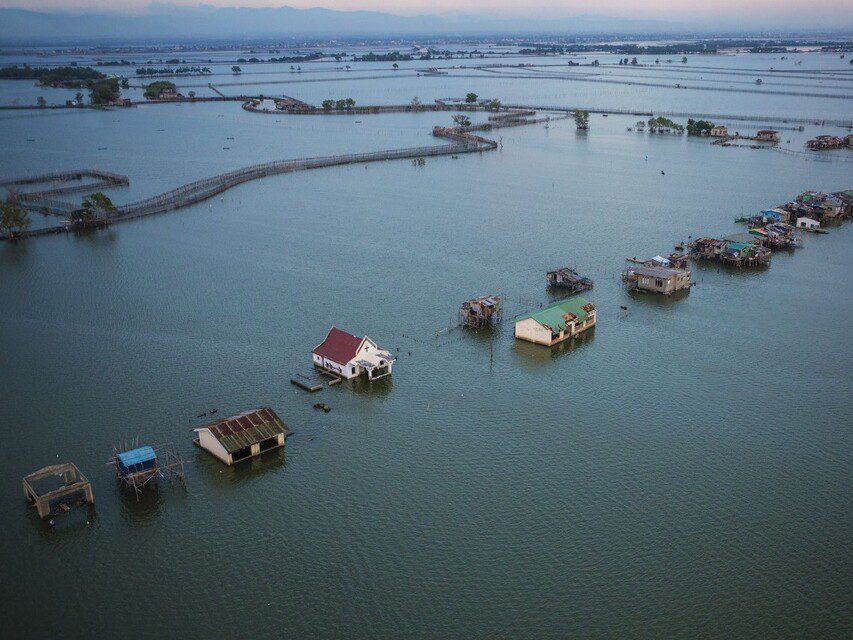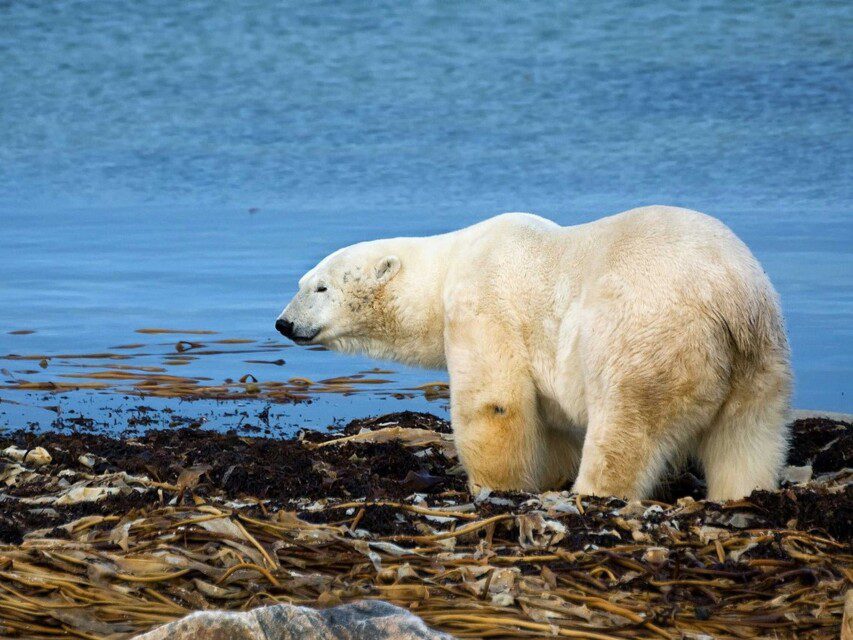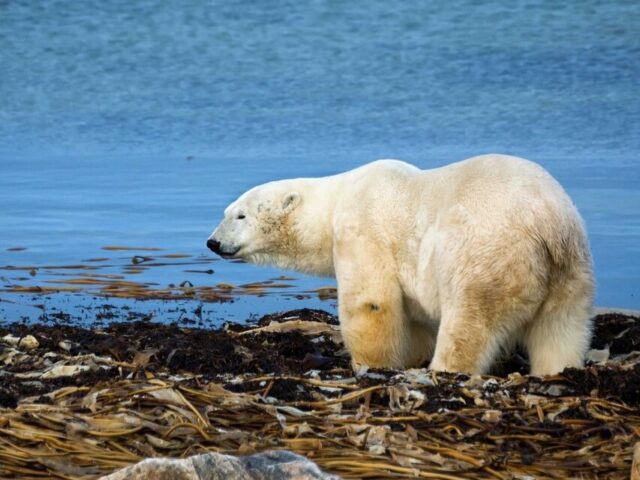Climate change has become one of the most pressing challenges of our time, and sadly, it is driven primarily by human activities. It is a global phenomenon that transcends borders, impacting ecosystems, economies, and societies on an unprecedented scale. The effects of climate change are becoming increasingly apparent and are leaving an indelible mark on the world. Below are some of the examples of climate change’s effects:
Rising Temperatures and Heatwaves
One of the most evident consequences of climate change is the rising global temperature. Over the last few decades, Earth’s average temperature has constantly increased, primarily due to the emission of greenhouse gases1. This temperature rise has led to more frequent and intense heat waves, resulting in health risks, agricultural losses, and strained energy resources. Within the next two decades, it is most likely that the average global temperature will increase by 1.5 degrees Celsius2. The current year, 2023, is reportedly on track to beat 2016 and 2020 as the hottest year on record3. However, none of the world’s major economies is on track to limiting global warming to less than 1.5 degrees Celsius above pre-industrial levels, even though it was legally bound through the Paris Agreement in 20162.
Melting Glaciers and Rising Sea Levels


(from left to right) Figure 1. Melting glacier in Antarctica4; Figure 2. Rising sea levels in coastal and island communities in Philippines5
The warming climate has caused the accelerated melting of glaciers and ice sheets in polar regions. As these ice masses shrink, they contribute to rising sea levels. This phenomenon severely threatens coastal communities, causing erosion, inundation of low-lying areas, and increased salination of freshwater sources. Small island nations are especially at risk of losing their homes and cultures due to the encroaching waters. The economic repercussions of sea-level rise are substantial, with damage to infrastructure, loss of valuable land, and the displacement of millions of people.
Extreme Weather Events
Climate change intensifies the frequency and severity of extreme weather events, including hurricanes, typhoons, droughts, and heavy rainfall. These events have devastating consequences for communities and ecosystems. Hurricanes and storms can lead to catastrophic flooding and wind damage, displacing communities and causing significant economic losses. Droughts can result in crop failures, food shortages and water scarcity, exacerbating social and political tensions.
Ecosystem Disruption and Biodiversity Loss

Natural ecosystems are intricately connected to climate patterns. As temperatures shift and habitats change, many species struggle to adapt or migrate in response. This disruption can lead to ecosystem shifts, altering species distribution and potentially causing imbalances in predator-prey relationships. Biodiversity loss is a direct consequence of these changes, where about 1 million species are at risk of extinction due to this global crisis2.
Health and Social Implications
Climate change has far-reaching effects on human health and well-being. The increased prevalence of heat waves and extreme weather events can lead to injuries, diseases, mental health issues, and even fatalities1. Additionally, changing climate patterns can influence the spread of infectious diseases as shifting temperatures affect the habitats of disease-carrying organisms. These health risks disproportionately affect vulnerable populations, including low-income communities and those without access to healthcare. Furthermore, other effects of climate change, such as severe floods, water scarcity that can significantly decrease food production and lead to the global rise of hunger and poor nutrition, and other extreme weather issues that force people to migrate to different locations, emphasise that climate change worsens poverty and creates displacement1.
Climate change has increasingly affected people and the environment globally, especially in the last few years. The Intergovernmental Panel on Climate Change (IPCC), a United Nations body for assessing the science related to climate change, has emphasised the alarming concern on this issue that they put into their Sixth Assessment Report (2021), which can be watched below.
IPCC’s Climate Change Report Explained7
The effects of climate change are diverse, interconnected, and rapidly unfolding. From rising temperatures and sea levels to the disruption of ecosystems and biodiversity, the consequences of the changing climate are touching every corner of the globe and detrimental to human life. However, this crisis cannot be solved by only one party; addressing this issue requires collective action on a global scale involving governments, industries, communities, and individuals. Transitioning to cleaner energy sources, implementing sustainable land-use practices, and promoting policies that mitigate climate impacts are crucial steps toward a more resilient future.
Sources:
- https://www.un.org/en/climatechange/science/causes-effects-climate-change
- https://www.earthday.org/5-terrifying-climate-change-facts-scare-halloween/
- https://www.bloomberg.com/news/articles/2023-07-17/2023-is-already-on-track-to-be-the-hottest-year-ever-recorded#xj4y7vzkg
- https://physicsworld.com/a/melting-glaciers-have-been-shifting-the-earths-poles-since-1995-new-study-suggests/
- https://www.nationalgeographic.org/activity/sea-level-evidence/
- https://kids.nationalgeographic.com/science/article/climate-change
- https://www.youtube.com/watch?v=82dBcj_GaVU





